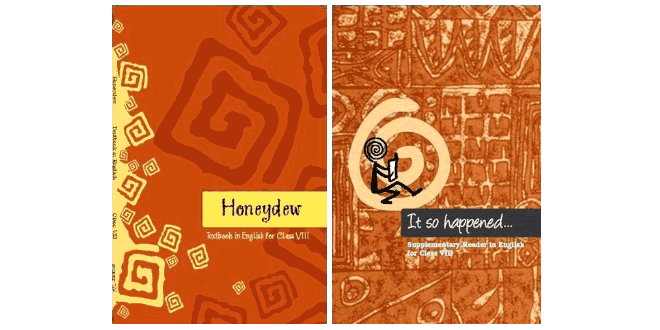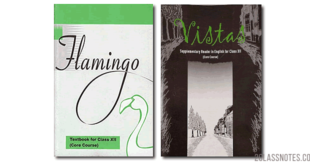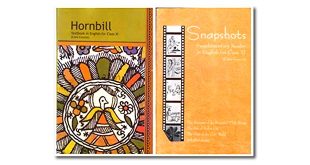A Short Monsoon Diary 8th Class NCERT CBSE English Honeydew Chapter 8
Question: What is a diary? What do the extracts from Ruskin Bond’s diary portray?
Answer: A diary is a record of personal experiences / events that occur in one’s life. It is written day after day over a long period of time. The extracts from Ruskin Bond‘s diary portray monsoon season and the changes that occur as the rains progress from June to March.
Question: How does the author describe the first day of monsoon mist?
Answer: On the first day of monsoon mist all the birds suddenly fall silent and with it absolute silence is spread. The hills got hidden by the mist. The forest is deadly still as though it were midnight.
Question: How does the author describe the scarlet minivets?
Answer: The scarlet minivets are seen during rainy season. They flit silently among the leaves like brilliant jewels. No matter how leafy the trees, these brightly colored birds cannot hide themselves.
Question: Why couldn’t the author sleep on August 2 night?
Answer: On August 2 it rained throughout the night. The rain had been drumming on the corrugated tin roof. There had been a steady swish of a tropical downpour. The author, therefore, couldn’t sleep.
Question: What happened on August 12?
Answer: Heavy downpour started on August 12. The rain continued for eight or nine days. Everything got damp and soggy. The author had to stay inside during these days.
Question: Name the flowers that you come across in the lesson.
Answer: Wild balsom, dahlias, begonias, ground orchids, cobra lilies etc.
Question: Why is the author not able to see Bijju?
Answer: The author was not able to see Bijju because of the mist that had covered the surroundings.
Question: What are the two ways in which the hills appear to change when the mist comes up?
Answer: When the mist comes up, the birds fall silent. The mist covers the hills. The forest becomes deathly still as though it were midnight.
Question: When does the monsoon begin and when does it end? How do you prepare to face the monsoon?
Answer: The monsoon begins in June and ends by the end of August.
Question: Which hill-station does the author describe in this dairy entry?
Answer: The author has described Mussoorie in the diary entry.
Question: For how many days does it rain without stopping? What does the author do on these days?
Answer: It rained without stopping for eight or nine days. Since there was nowhere to go, the author paced in his room and looked out of the window at a few bobbing umbrellas.
Question: Where do the snakes and rodents take shelter? Why?
Answer: The snakes and rodents take shelter in roofs, attics and godown because they are flooded out of their holes and burrows due to excessive rain.
Question: What did the author receive in the mail?
Answer: The author received a cheque in the mail.
Question: Look carefully at the dairy entries for June 24 – 25, August 2 and March 23. Now write down the changes that happen as the rains progress from June to March.
Answer: June 24 was the first day of monsoon mist. All the birds fell silent as the mist climbed up the hills. The author calls the mist melancholy because not only does it conceal the hills, it blankets them in silence too. On June 25, there was some genuine early monsoon rain. It was warm and humid, contrary to the cold high-altitude weather that the author had been experiencing all year. It seemed to the author that the plants knew it too, and the first cobra lily reared its head from the ferns. He described the weather as ‘a paradise that might have been’. On August 2, it rained all night. There had been no storm or thunder. The author experienced a feeling of “being untouched by, and yet in touch with, the rain”. March 23 marked the end of winter. The blackest cloud he had ever seen spread over Mussoorie and then it hailed marbles for half an hour. The hailstorm cleared the sky and he saw a rainbow forming.
Question: Why did the grandmother ask the children not to kill the Chuchundar?
Answer: The grandmother asked the children not to kill the Chuchundar because it was considered lucky. She said that it brought money.
Question: What signs do we find in Nature which show that the monsoons are about to end?
Answer: The seeds of the cobra lily turning red signified that the monsoons were about to end.
Question: Complete the following sentences.
- Bijju is not seen but his voice is heard because ________________.
- The writer describes the hill station and valley as ________________.
- The leopard was successful in ________________ but had to flee when ________________.
- The minivets are easily noticed because ________________.
- It looks like a fashion display on the slopes when ________________.
- During the monsoon season, snakes and rodents are found in roofs and attics because ________________.
Answer:
- Bijju is not seen but his voice is heard because of the mist in the surroundings.
- The writer describes the hill station and valley as a paradise that might have been.
- The leopard was successful in attacking one of Bijju’s cows but had to flee when Bijju’s mother came screaming curses.
- The minivets are easily noticed because of their bright colors.
- It looks like a fashion display on the slopes when ground orchids, mauve lady’s slipper and the white butterfly orchids bloom.
- During the monsoon season, snakes and rodents are found in roofs and attics because they have been flooded out of their holes and burrows.
Question: ‘Although tin roofs are given to springing unaccountable leaks, there is a feeling of being untouched by, and yet in touch with, the rain.’
- Why has the writer used the word, ‘springing’?
- How is the writer untouched by the rain?
- How is the writer in touch with the rain at the same time?
Answer:
- The word ‘springing’ means ‘to develop suddenly’. The writer says that tin roofs are prone to developing unexpected leaks.
- The writer was physically untouched by the rain as the tin roof stopped the rain from leaking in.
- The writer was in touch with the rain at the same time because he could feel the rain by listening to its drumming sound on the corrugated tin roof.
A Short Monsoon Diary – Question: Mention a few things that can happen when there is endless rain for days together.
Answer: When there is endless rain for days together, everything becomes damp and soggy. There is no place for anybody to go to. The hillsides are lush as late monsoon flowers such as wild balsam, dahlias, begonias and ground orchids begin to appear.
Question: What is the significance of cobra lily in relation to the monsoon season, its beginning and end?
Answer: When monsoon begins, the first cobra lily appears from the ferns. When the seeds of the cobra lily turn red, it signifies that the monsoon is coming to an end.
Question: Here are some words that are associated with the monsoon. Add as many words as you can to this list. Can you find words for these in your languages?
Answer: rain, water, fog, raincoats, thunder, dampness, lakes etc.
In my language I find the alternative words like the following:
बौछार, बूंदाबांदी, तुषार, धुंध, सीत, छतरी, रेनकोट, आंधी, इत्यादी
Question: Look at the sentences below.
- Bijju wandered into the garden in the evening.
- The trees were ringing with birdsong.
Notice the highlighted verb.
The verb wandered tells us what Bijju did that evening. But the verb was ringing tells us what was happening continually at same time in the past (the birds were chirping in the trees).
Now look the at sentences below. They tell us about something that happened in the past. They also tell us about other things that happened continually* at the same time in the past.
Put the verbs in the brackets into their proper forms. The first one is done for you.
- We (get out) of the school bus. The bell (ring) and everyone (rush) to class.
- We got out of the school bus. The bell was ringing and everyone was rushing to class.
- The traffic (stop). Some people (sit) on the road and they (shout) slogans.
- I (wear) my raincoat. It (rain) and people (get) wet.
- She (see) a film. She (narrate) it to her friends who (listen) carefully.
- We (go) to the exhibition. Some people (buy) clothes while others (play) games.
- The class (is) quiet. Some children (read) books and the rest (draw).
Answer:
- We got out of the school bus. The bell was ringing and everyone was rushing to class.
- The traffic stopped. Some people were sitting on the road and they were shouting slogans.
- I wore my raincoat. It was raining and people were getting wet.
- She saw a film. She was narrating it to her friends who were listening carefully.
- We went to the exhibition. Some people were buying clothes while others were playing games.
- The class was quiet. Some children were reading books and the rest were drawing.
A Short Monsoon Diary – Question: Here are some words from the lesson which describe different kinds of sounds.
(i) Match these words with their correct meanings.
- to fall in small drops
- to make a sound by hitting a surface repeatedly
- to move quickly through the air, making a soft sound
- harsh sound made by birds
- ringing sound (of a bell or breaking glass, etc.)
(ii) Now fill in the blanks using the correct form of the words given above.
- Ramesh ____________ on his desk in impatience.
- Rain water ____________ from the umbrella all over the carpet.
- The pony ____________ its tail.
- The _________________ of breaking glass woke me up.
- The ____________ of the raven disturbed the child’s sleep.
Answer:
(i)
- to fall in small drops − drip
- to make a sound by hitting a surface repeatedly − drum
- to move quickly through the air, making a soft sound − swish
- harsh sound made by birds − caw
- ringing sound (of a bell or breaking glass, etc.) − tinkle
(ii)
- Ramesh drummed on his desk in impatience.
- Rain water dripped from the umbrella all over the carpet.
- The pony swished its tail.
- The tinkling of breaking glass woke me up.
- The cawing of the raven disturbed the child’s sleep.
Question: Complete each sentence below by using appropriate phrase from the ones given below.
kind enough big enough fair enough
brave enough foolish enough anxious enough
- I saw thick black clouds in the sky. And ___________ it soon started raining heavily.
- The blue umbrella was ___________ for the brother and sister.
- The butterflies are ___________ to get noticed.
- The lady was ___________ to chase the leopard.
- The boy was ___________ to call out to his sister.
- The man was ___________ to offer help.
- The victim’s injury was ___________ for him to get admitted in hospital.
- That person was ___________ to repeat the same mistake again.
- He told me he was sorry and he would compensate for the loss.
I said, ‘___________.’
Answer:
- I saw thick black clouds in the sky. And sure enough it started raining heavily.
- The blue umbrella was big enough for the brother and sister.
- The butterflies are colorful enough to get noticed.
- The lady was brave enough to chase the leopard.
- The boy was anxious enough to call out to his sister.
- The man was kind enough to offer help.
- The victim’s injury was serious enough for him to get admitted in hospital.
- That person was foolish enough to repeat the same mistake again.
- He told me he was sorry and he would compensate for the loss. I said, ‘fair enough’.
Question: Who are the seasonal visitors? How does the author describe them?
Answer: The seasonal visitors are a leopard, several thousand leeches and different kinds of birds. The leopard created nuisance. It lifted a dog from near the servants’ quarter below the school. In the evening, it attacked one of Bijju’s cows. The scarlet minivets flitted silently among the leaves like brilliant jewels. No matter how leafy the trees, these brightly colored birds could not conceal themselves. There was also a pair of drongos. They looked aggressive and chased the minivets away.
A tree creeper moved rapidly up the trunk of the oak tree, snapping up insects, all the way.
A Short Monsoon Diary – Question: Sum up the main ideas of the author’s Monsoon Diary in about 100 words.
Answer: The writer was in Mussoorie, a hill station in U.P. The first day of monsoon brought mist. The birds got silent and the hills became invisible. On June 25, came the early monsoon rain. He described the hill station as ‘A paradise’ that might have been to a school boy. With the onset of the monsoon one could see leopards and leeches and the colorful minivet birds. There was no dearth of insects for the birds to eat. On August 2, it rained heavily and non-stop. The roofs began to leak. The rain stopped on August 3. The sunlight fell on the hills and the song birds began to sing. On August 12, there was heavy downpour and mist for more than a week. Everything was damp. Meanwhile wild flowers began to appear. August 31 saw the greenery at its peak. Snakes and rodents came out of their flooded holes and hid in roofs or godowns. Winter rain, hailstones and snow came on October 3. The author couldn’t go outside and he felt very lonely in his room. Late March saw the end of winter. He received a cheque in the mail.
 Class Notes NCERT Solutions for CBSE Students
Class Notes NCERT Solutions for CBSE Students




